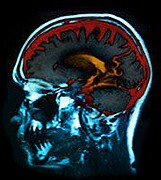
THURSDAY, May 2 (HealthDay News) — The brains of children with conduct problems don’t react in a normal way when they see images of other people in pain, a new study finds.
Conduct problems include antisocial behaviors such as cruelty to others, physical aggression and a lack of empathy (callousness).
In this study, U.K. researchers used functional MRI to scan the brains of children with conduct problems and a control group of normally behaved children as they viewed images of other people in pain.
The children with conduct problems showed reduced responses to others’ pain, specifically in regions of the brain that play a role in empathy. Among the children with conduct problems, those who were the most callous had the lowest levels of activation in these brain areas, according to the study. It was published May 2 in the journal Current Biology.
This pattern of reduced brain activity in children with conduct problems may be a risk factor for becoming psychopaths when they’re adults, said Essi Viding, of University College London, and colleagues. Psychopathy includes traits such as callousness, manipulation, sensation-seeking and antisocial behaviors.
The researchers noted, however, that not all children with conduct problems are the same, and many do not continue their antisocial behavior as they get older.
“Our findings indicate that children with conduct problems have an atypical brain response to seeing other people in pain,” Viding said in a journal news release. “It is important to view these findings as an indicator of early vulnerability, rather than biological destiny. We know that children can be very responsive to interventions, and the challenge is to make those interventions even better, so that we can really help the children, their families and their wider social environment.”
More information
The U.S. National Library of Medicine has more about conduct disorder in children.

